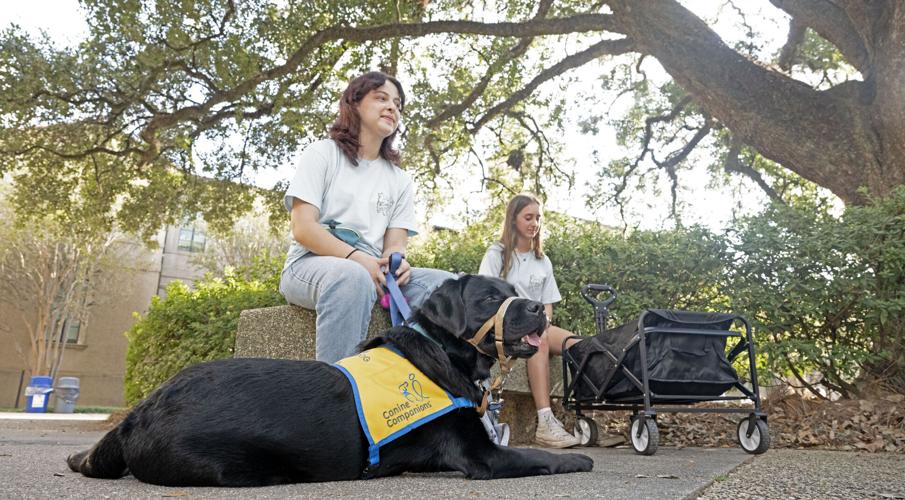At Duke University, there’s a special program that’s changing lives—both for people with disabilities and for puppies.

The unique Puppy Kindergarten program trains young dogs to become certified service dogs, equipping them with the skills needed to assist individuals with disabilities. This innovative course is the first of its kind on a university campus, in partnership with Canine Companions, a nonprofit organization.
From a young age, the puppies undergo rigorous training, learning to perform tasks like opening doors, turning off lights, and retrieving dropped items.
For individuals who are deaf, the dogs are trained to alert them to sounds like doorbells or smoke alarms. These life-saving skills are taught through fun and interactive cognitive games, and each puppy is assessed for their ability to problem-solve and make eye contact—indicators of their potential to become a successful service dog.
The training process is both a significant time and financial investment. Puppies like 12-week-old Abel and 14-week-old Yale spend about two years in the program, with each dog receiving approximately $50,000 worth of training. Despite this effort, only about half of the puppies graduate to become certified service dogs.
The ones who do make it, however, go on to have a life-changing impact on their future owners.
The Impact of Service Dogs
For people like Debra Johnson, a service dog can be a game-changer. Johnson, who suffers from a rare genetic disease, waited three years to receive her dog, Storm, who now assists her both physically and emotionally.
“He helps me not feel lonely,” Johnson explains. “He gets me moving and also bridges the gap in the community by making people feel more comfortable around individuals with disabilities.”
The dogs provided through the program, like Storm, are given to recipients free of charge, thanks to the support of donors. These incredible animals offer not just physical help but also provide invaluable companionship and emotional support to their owners.
Contents
Conclusion:
The Puppy Kindergarten at Duke University is a remarkable initiative that transforms puppies into highly trained service dogs, ready to help people with disabilities live more independent and fulfilling lives.
The program’s dedication, paired with its partnership with Canine Companions, ensures that those who need these dogs most receive them, completely free of charge. The puppies’ journey from playful learners to lifesaving companions is a testament to the value of this innovative project.
FAQs
- What is Puppy Kindergarten at Duke University?
Puppy Kindergarten is a unique program where puppies are trained to become certified service dogs for individuals with disabilities. - What skills do the service dogs learn?
These dogs are trained to perform tasks such as opening doors, turning off lights, retrieving dropped items, and alerting their owners to important sounds. - How long does it take to train a service dog?
The training process lasts about two years, and each dog undergoes extensive training, costing approximately $50,000. - Do all puppies graduate from the program?
No, only about 50% of the puppies graduate to become certified service dogs. The rigorous process ensures only the best-suited dogs move forward. - Are the service dogs free for people with disabilities?
Yes, the service dogs are provided free of charge to individuals with disabilities, thanks to the support of donors and organizations like Canine Companions. - What is the impact of a service dog on a person’s life?
Service dogs can have a life-changing impact, offering both physical assistance and emotional support, helping people with disabilities lead more independent and fulfilling lives.







